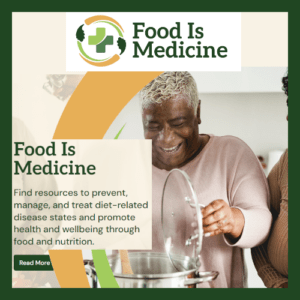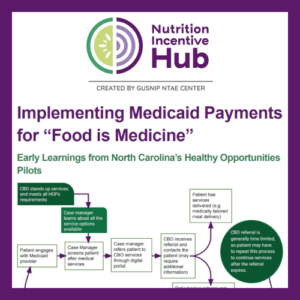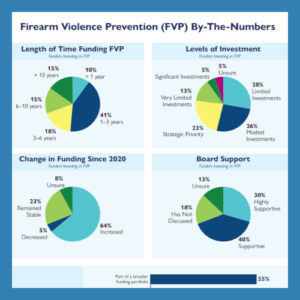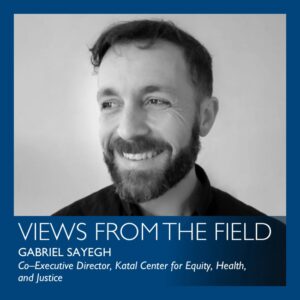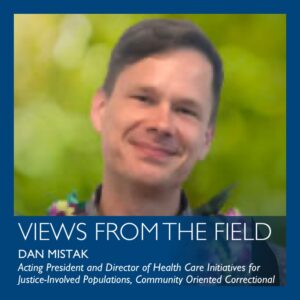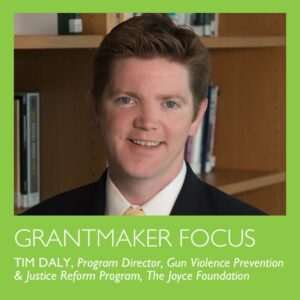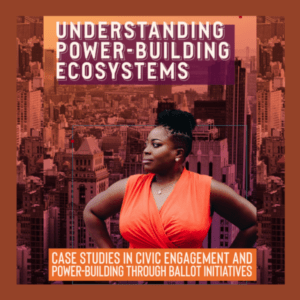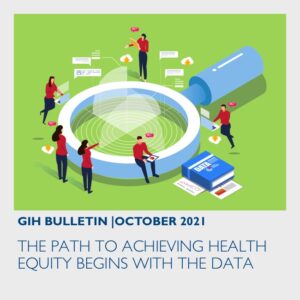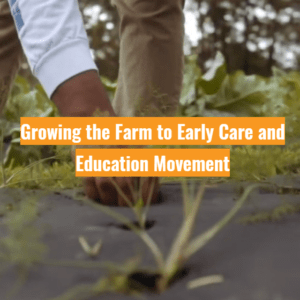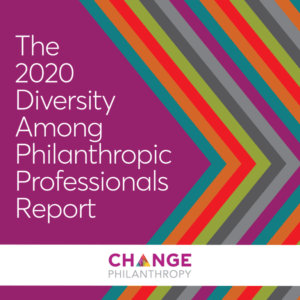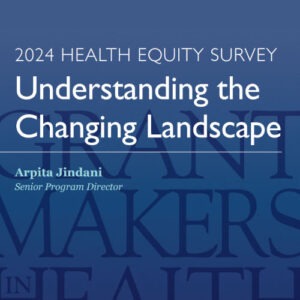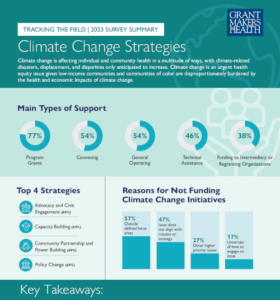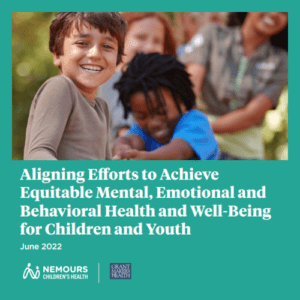Upcoming Events
Past Events
Featured Resources
New America Report Examines Subminimum Wage for Disabled Workers
Under the Fair Labor Standards Act, employers are allowed to pay disabled workers less than the federal minimum wage, which has significant impacts on these workers’ health and well-being. A report from New America examines, state by state, the policies that drive the use or elimination of the subminimum wage, as well as the programs each state provides to more comprehensively support individuals with disabilities as they seek meaningful employment and fair wages.
HHS Launches New Food is Medicine Virtual Toolkit
The Toolkit was developed in response to the National Strategy on Hunger, Nutrition, and Health and to support communities design and implement effective Food is Medicine interventions.
Case Study Examines Early Learnings in Using Medicaid Payments for Food is Medicine
A new resource commissioned by the Fair Food Network examines the early learnings from the Healthy Opportunities Pilots effort in North Carolina to use federal 1115 Medicaid Demonstration Waiver funding to scale and sustain community-based implementation of a combination of produce prescription programs, medically tailored meal programs, and nutrition education.
Explore Health Equity and Social Justice Topics
Recent Items - Climate and Environmental Health
The Health Sector is a Critical Voice in Climate Advocacy
Recent Items - Health Equity
Let’s Take Courageous Steps Together in 2025
Recent Items - Healthy Eating/Active Living
The National Peanut Board: April 2025
Recent Items - Housing
Marin Community Foundation: October 2024
Horizon Foundation: September 2024
Recent Items - Justice Reform
Recent Items - Social Determinants of Health
Marin Community Foundation: October 2024
Recent Items - Violence Prevention
The Joyce Foundation
Latest Resources
Moving the Needle on Black Birth Equity – A Call to Action
Philanthropy has an urgent responsibility and opportunity to address the structural factors leading to birth inequities. Healthier pregnancies, labors, and postpartum recoveries not only benefit birthing individuals, but also result in healthier children and families. Focusing attention on those who need it most could have positive implications for entire communities harmed by systemic racism for future generations. There is much work to do, but not enough philanthropic organizations are supporting these issues to tackle them at scale. We need all hands-on deck to truly move the needle. We five funders— from different states and coming to this issue from different angles—are reaching out to our fellow funders with a call to action to join us to in this work.
Understanding Power Building Ecosystems
This study offers analysis of the conditions and strategies that enhance or stymie power-building in relation to three ballot initiative issues, each of which has the potential to improve community health outcomes: Affordable Housing, Medicaid Expansion, Criminal Justice Reform.
The Path to Achieving Health Equity Begins with The Data
As we work towards a more just and equitable future, we must ensure that we have the data needed to measure the things we are trying to improve. It is no longer acceptable to say we do not know.
New Resources for Investing in Farm to Early Care and Education
Farm to early care and education initiatives work across systems, linking health, education, and agriculture to support young children’s cognitive, physical, and social-emotional development; improve community nutrition; and build sustainable local food systems. The W.K. Kellogg Foundation has released a set of new resources based on the learnings from their five-year, five-state (Georgia, Iowa, North Carolina, Pennsylvania, and Wisconsin) investment in farm to early care and education.
Moving from Intention to Impact: Funding Racial Equity to Win
In a joint report, Moving from Intention to Impact: Funding Racial Equity to Win, PolicyLink and The Bridgespan Group examines commitment to funding for racial equity work in the US. In the last year, donors across the spectrum from foundations to corporations have made unprecedented commitments to advancing racial equity. Two key takeaways from the report to encourage funders to make real impact in racial equity is the need for transparent reporting and being responsive to the needs of movement leaders.
The 2020 DAPP Report – Change Philanthropy
Change Philanthropy has released its 2020 Diversity Among Philanthropic Professionals Report that analyzes the philanthropic workforce and identifies trends and gaps in diversity and inclusion in philanthropy. Over 2,300 individuals, including staff and board members, from 124 foundations participated through an anonymous, self-reported survey. The report covers diversity and representation across multiple areas including race/ethnicity, sexual orientation, gender, and immigration status, and highlights differences by geographical regions in the US.
Reports and Publications
2024 Health Equity Survey: Understanding the Changing Landscape
In 2024, Grantmakers In Health (GIH) surveyed its Funding Partners to understand how their health equity work has evolved. The survey consisted of 40 questions including demographic information, program focus areas, partner engagement, organizational strategy, priority population, successes, and challenges. This report summarizes findings from the Health Equity Survey titled, “Understanding the Changing Landscape.”
2023 Survey Summary: Climate Change Strategies
This infographic summarizes the responses to a Grantmakers In Health funder survey, conducted in May and June 2023, on how philanthropy is addressing climate change, and the barriers and opportunities that exist to support climate-related efforts.
Aligning Efforts to Achieve Equitable Mental, Emotional, and Behavioral Health and Well-Being for Children and Youth
This report issues a call to action for philanthropic organizations and public-sector partners that are ready to move forward in improving mental, emotional, and behavioral health. It describes existing philanthropic and federal initiatives and offers a potential portfolio of aligned strategies for private- and public-sector partners to consider.
Strengthen your knowledge, skills, and capacity.
GIH focuses our programming around five areas that are critical to achieving better health for all.
We invite you to explore the resources available on our focus areas pages, browse content in more specific issue areas, and to connect with GIH staff to discuss how we can partner and support your work.


